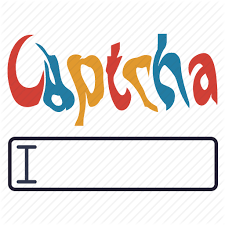
A 2 captcha code is an activation process for a login page, usually found on a web page, or at the bottom of an email message. The user is prompted to enter an answer for a security question, such as "What is your name? ", before they are allowed to proceed. Without the use of this code, the user would be unable to proceed further on the website or message, and their request would be denied.
These codes first became popular with email messaging services, but later found their way onto websites. These pages used a security mechanism known as HTTP starvation, where a website would ask for user input; wait for the user to reply, and then post the resulting response to the user's browser. When a user clicked the "submit" button, the server would post the response, without sending an HTML code. This HTML code could be interpreted by the browser in terms of JavaScript code and then executed in the user's browser. If the code ran inside the browser, then it would run as JavaScript, and if the code were evaluable, the user would see the result of their actions. In other words, a user could execute code before the page displayed anything to them and then see a preview of the page, so they knew what they were getting into.
With email messaging, and perhaps other forms of client-server communication, a 2 CAPTCHA code was required to provide authentication and integrity to the system. Without this security measure, a hacker could easily change messages and redirect users to other sites, or even send them to fraudulent websites. For example, if a user was logged into a financial institution's website, and that website did not have a method for changing the username, they would be forced to use the user name they had originally entered in the system, even though they were unauthorized to access certain areas or information.
In order to stop these attacks from occurring, a site could require the user to answer a set of security questions before being allowed to proceed further. A simple solution would be to use a secure lock with a password, or even a password reset link, that could be sent to the user's email. This would prevent a hacker from using the user's address book to create a new account or redirecting the user to another part of the site. The lock or password reset would provide the user with protection, but it could also be forced upon the user should they forget the combination. This could cause significant damage to the site and could even result in the closing of the site.
A more permanent solution would be to use a captcha code that was created by a third party. These businesses offer software that could be used for a variety of purposes, including creating a login prompt, or even providing a way to generate a CAPToggle code. A captcha code is a line or character that a user has to enter into their browser in order to gain entrance into a website. This can be very difficult to crack, as most cracking software relies on guessing the correct number of characters. Because this requires a great deal of skill, and many years of practice, larger companies to ensure the safety and security of their websites often use it.
In conclusion, it is important for website owners to think about how to increase security for their websites. One of the best ways is by not using simple Captcha and Anti Captcha and instead implementing a more secure method of entering data into a site. A good solution would be to use a captcha code, or even a vault that provides users with a secret passcode. However, the problem with such systems is that they are often difficult to use, or even impossible for some users to crack. It would be very beneficial for users if there was a way to increase security on websites without requiring them to have extra knowledge of how to use HTML or JavaScript.

